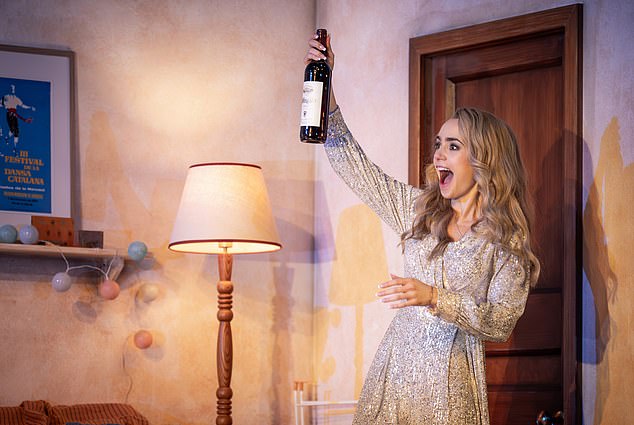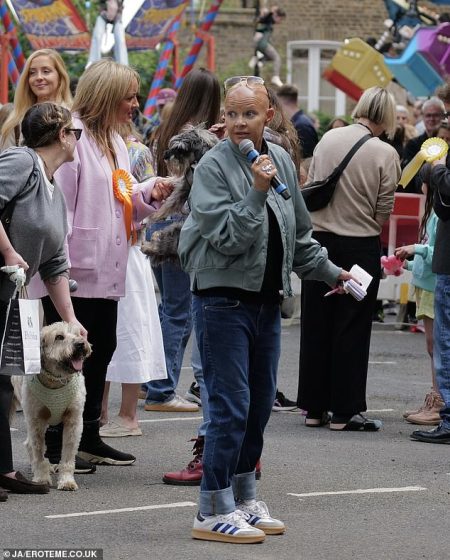“Emily In Paris” is a hit Netflix comedy drama that follows the adventures of Lily Collins’s character, Emily, as she navigates life in Paris with her unsquashably chirpy charm, impeccable fashion sense, and inability to learn French. The show has gained popularity for its addictive storyline and is set to release its fifth season. In a turn of events, Lily Collins makes her stage debut as an American abroad in Barcelona in Bess Wohl’s play titled Emily in London. The play opens with a ghostly vibe and follows the story of Irene, played by Lily Collins, and Manuel as they navigate a chance encounter that leads to unexpected twists and turns.
In Barcelona, Lily Collins’s character finds herself in a city apartment, wearing a sequined jumpsuit, and off her face on sangria, after a wild weekend away with her girlfriends. She makes a daring move on the older Spaniard at the bar, Manuel, and ends up in his apartment in a modern-day Cinderella scenario. Despite the initial gothic horror atmosphere, the play mends into a rom-com as Irene and Manuel navigate their drunken banter and surprising chemistry. As the story unfolds, it becomes clear that there is more to these characters than meets the eye, and the play takes an unexpected turn towards a deeper and more emotional narrative.
As the plot thickens, Lily Collins’s character, Irene, finds herself in a precarious situation with Manuel, who harbors deep-seated resentment towards Americans. Despite their cultural differences and initial misunderstandings, the characters begin to reveal more about themselves, drawing the audience into their story and creating a sense of tension and anticipation as the play progresses towards its climax. With elements of revenge, cultural clashes, and hidden depths, “Barcelona” explores the themes of learning to live again when all seems lost, leading to unexpected revelations and character growth for both Irene and Manuel.
Directed by Lynette Linton, “Barcelona” showcases Lily Collins’s talent and versatility as an actress, as she transitions from her comedic role in “Emily In Paris” to a more nuanced portrayal in the stage play. Collins brings a sense of stillness, quiet intensity, and hidden depths to her character, surprising both the audience and her character with her performance. The play may have its flaws, with some aspects of telling rather than showing, but it ultimately evolves into a poignant exploration of life and love, as Irene and Manuel grapple with their pasts and uncertain futures. As dawn breaks and time runs out, the characters must confront their emotions and make decisions that will shape their lives moving forward.















